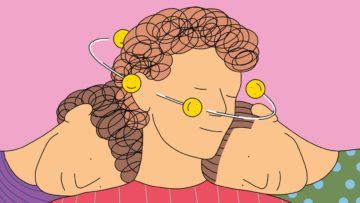Arthur C. Brooks in The Atlantic:
 “You are … irritating and unbearable, and I consider it most difficult to live with you.” So wrote Johanna Schopenhauer in a 1807 letter to her 19-year-old son Arthur. “No one can tolerate being reproved by you, who also still show so many weaknesses yourself, least of all in your adverse manner, which in oracular tones, proclaims this is so and so, without ever supposing an objection. If you were less like you, you would only be ridiculous, but thus as you are, you are highly annoying.”
“You are … irritating and unbearable, and I consider it most difficult to live with you.” So wrote Johanna Schopenhauer in a 1807 letter to her 19-year-old son Arthur. “No one can tolerate being reproved by you, who also still show so many weaknesses yourself, least of all in your adverse manner, which in oracular tones, proclaims this is so and so, without ever supposing an objection. If you were less like you, you would only be ridiculous, but thus as you are, you are highly annoying.”
The two-century-old letter amazes not just for its mix of archaic diction and sick burns, but also because it violates some of humanity’s most basic assumptions about how mothers feel about their children. Motherhood is supposed to bring unparalleled happiness. The Bible, for example, is full of stories of women—Sarah, Hannah, Elizabeth—who go from sorrow to joy when God grants them an unexpected child. In real life, the relationship between happiness and motherhood is more complicated. Raising small children is far from unmitigated bliss. Year after year, surveys that ask mothers what they most want for Mother’s Day find that their No. 1 answer is time alone. As children grow up, mothers’ mixed feelings seem to stick around. Research suggests that plenty of mothers, while perhaps not as up-front as Johanna, feel some resentment toward their adult progeny, especially when the relationship feels unequal. Thankfully, social science also offers clues to how adult children can patch things up and make their moms happier.
…Arthur Schopenhauer grew up to become one of the greatest thinkers of the 19th century, but he never figured out how to make his mom happy. “The door that you slammed so loudly yesterday, after you had conducted yourself extremely improperly toward your mother, closed forever between you and me,” Johanna wrote to him after an especially bad argument in 1813. By all accounts they never saw each other again.
More here.
